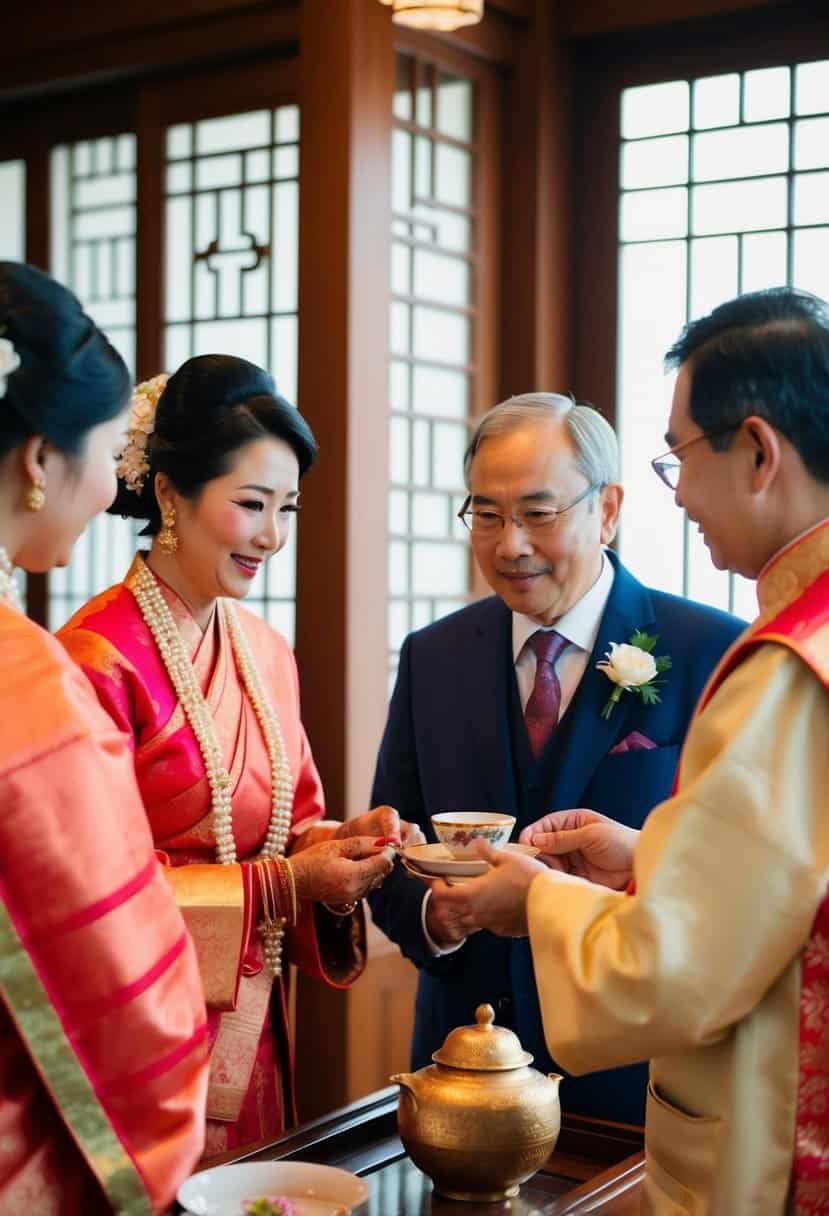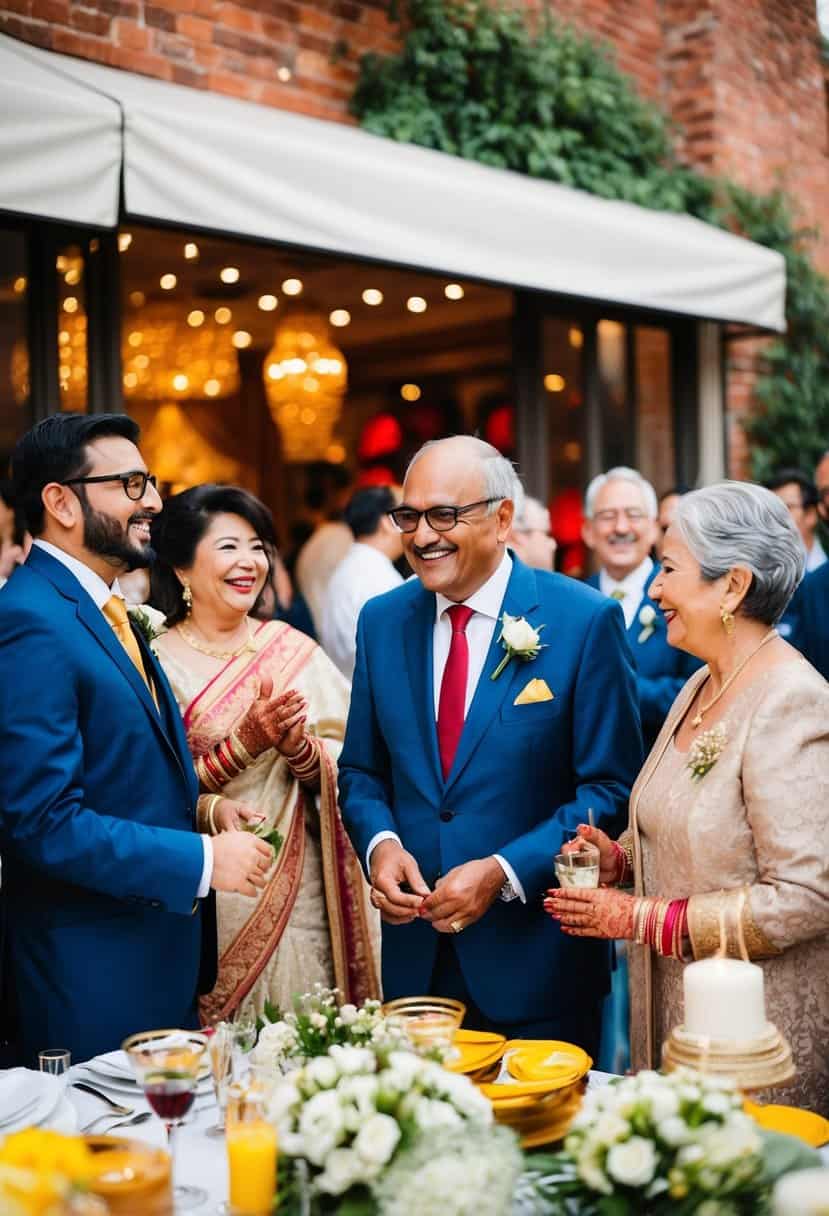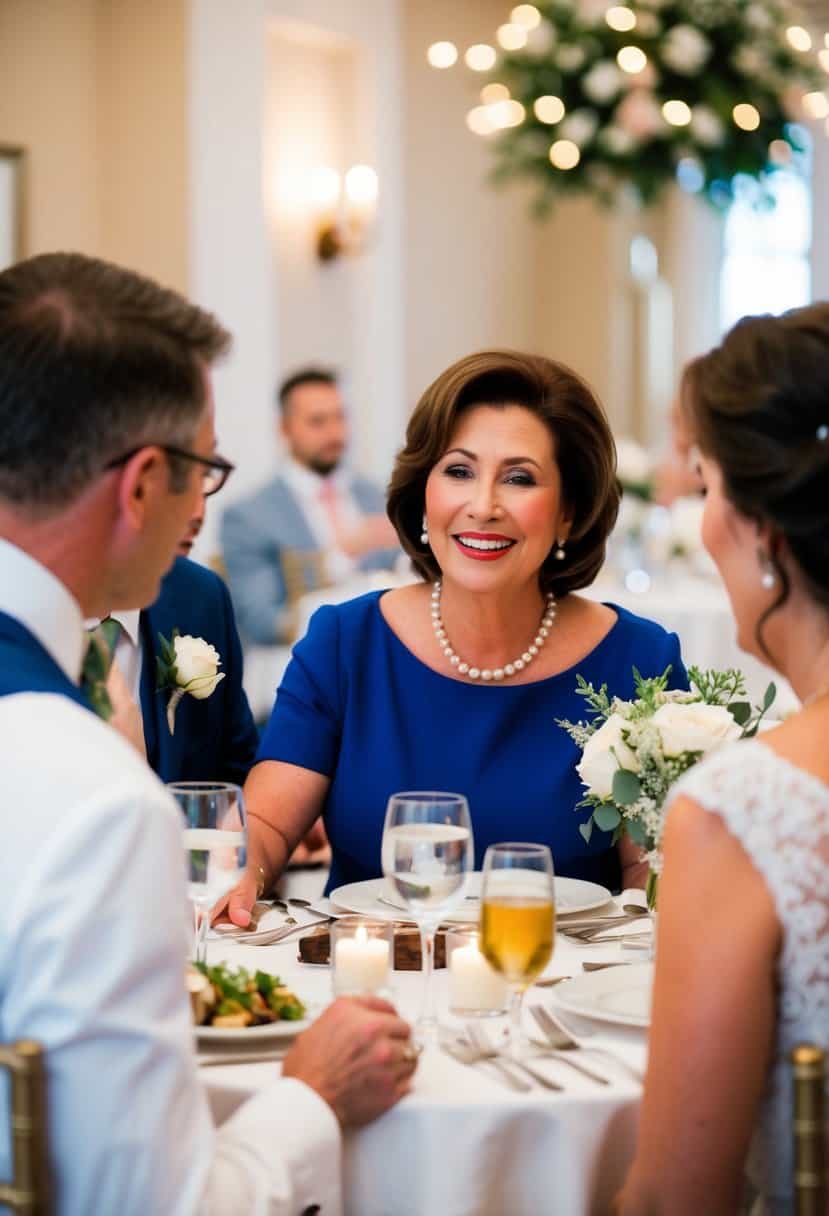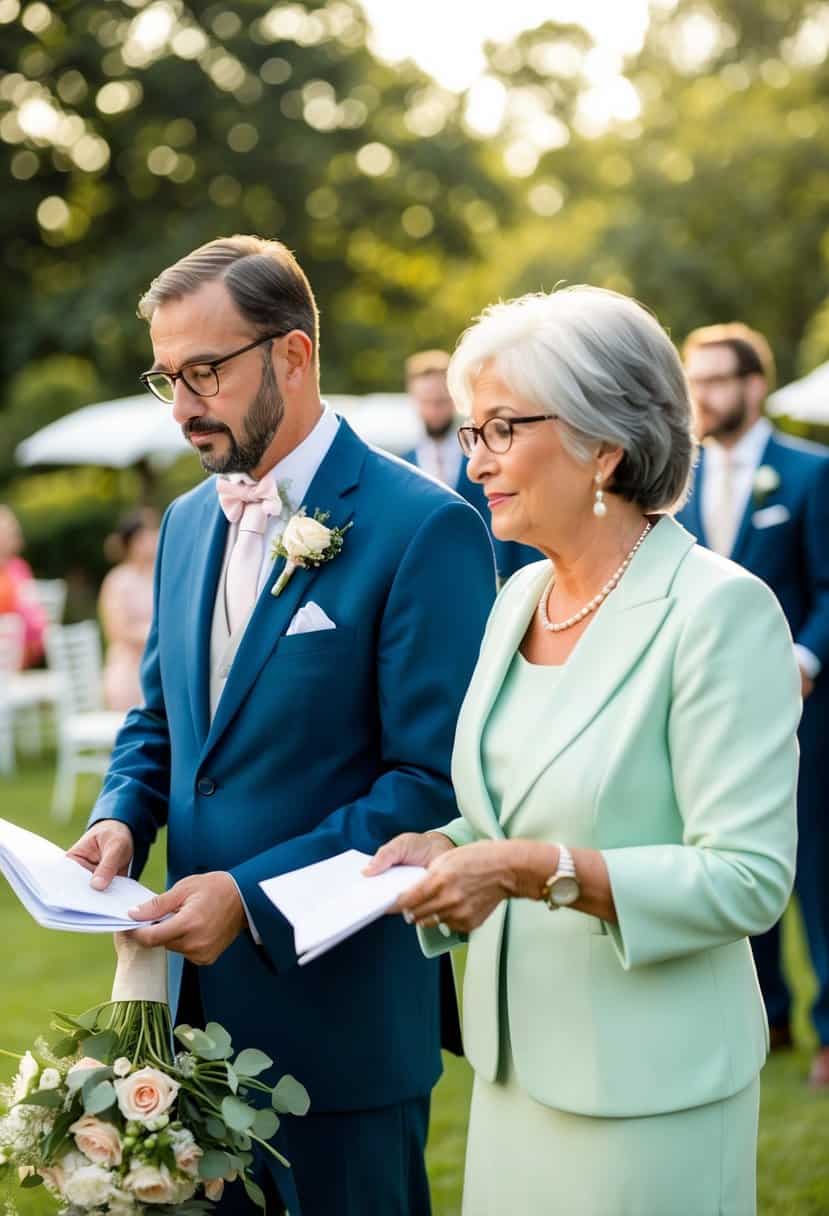What are Groom’s Parents Responsible For? A Helpful Guide
When you’re diving into the world of weddings, understanding what the groom’s parents are responsible for can help things run smoothly. Traditional etiquette suggests that they might handle certain costs, such as the rehearsal dinner. A common responsibility is helping to plan and host the rehearsal dinner, a key event in the wedding planning process. This is a wonderful way for the groom’s parents to contribute financially and be deeply involved.

Beyond financial responsibilities, the groom’s parents can also play important roles during the ceremony itself. They may be asked to do a reading or participate in other parts of the event to feel more included. These moments allow them to share in the spotlight and support their son during this big day.
Interestingly, in modern weddings, what the groom’s parents choose to do is often up to the couple’s preferences. Your involvement can range from hosting events to coordinating with florists if that’s what the couple desires. By staying flexible and communicative, you ensure everyone is on the same page, helping the wedding go off without a hitch.
Pre-Wedding Events

Before the wedding day, the groom’s parents often take on key roles in arranging and hosting pre-wedding events. These events help bring families together, create memorable moments, and ease the transition into the wedding celebration.
Engagement Party Details
An engagement party is one of the first major pre-wedding events. As the groom’s parents, you might consider hosting or co-hosting this event. It’s a great opportunity to celebrate the couple’s commitment and introduce both families.
When planning, think about the guest list, inviting close family members and friends who are important to the couple. Consider choosing a venue that suits the number of guests and the style you prefer, whether it’s a formal dinner or a casual backyard gathering. Your financial contributions will help cover costs such as food, drinks, and decorations.
Planning the Rehearsal Dinner
The rehearsal dinner is traditionally hosted by the groom’s parents. Held the night before the wedding, this event is meant to relax everyone and go over important details.
You’ll need to decide on the location. Some choose a restaurant, while others prefer hosting at home. The guest list usually includes the wedding party and close family members. It’s a time to offer special toasts that reflect your love and support for the couple. Covering expenses like venue, food, and drinks is part of this responsibility.
Hosting a Welcome Party
If many guests are coming from out of town, a welcome party is a thoughtful way to greet them. This informal gathering offers the chance to mingle and enjoy each other’s company.
Consider a venue like a local park or community center. You could plan fun activities or entertainment to make guests feel welcome. Since it’s usually less formal than the rehearsal dinner, the atmosphere should be more relaxed. Using your creativity and financial contributions, you can make this event a warm, inviting start to the wedding festivities.
Financial Aspects

Understanding the financial aspects of a wedding involves knowing what the groom’s parents typically contribute. It’s helpful to know how to manage a wedding budget effectively and identify which expenses you might cover.
Understanding Who Pays for What
Traditionally, the groom’s family has some specific financial responsibilities. You’re often expected to cover costs like the rehearsal dinner and the marriage license. Some families might choose to pay for part of the wedding reception. It’s important to communicate with the bride’s family to determine each side’s contributions. This can help avoid misunderstandings and ensure a smooth planning process for everyone involved. Discuss your budget openly to decide which expenses make the most sense for your family to handle.
Managing the Wedding Budget
Managing a wedding budget involves planning and organization. You’ll want to start by setting an overall limit on how much you can spend. Write down each of the expenses and compare them to your budget. If costs seem too high, look for areas where you can save. Working with a wedding planner or using budgeting tools can be useful. By keeping track of expenses, you’ll have a clear understanding of where each dollar goes and avoid unforeseen financial stress. This will also help you ensure that nothing crucial is overlooked in the process.
Contributions Towards Wedding Expenses
Your contributions as the groom’s family can vary based on tradition and personal preference. Alongside mandatory expenses, you might consider assisting with transport or accommodations for out-of-town guests. Some families also choose to contribute to the honeymoon fund or offer financial help for other wedding expenses. While traditions provide a guide, remember that your contributions should be based on what aligns with your values and budget. Engage in open discussions with both families and the couple to decide on your role in the wedding.
Wedding Preparations

As parents of the groom, you have several responsibilities leading up to the big day. Your involvement will be invaluable in areas like choosing the groom’s attire, providing meaningful gifts to the groomsmen, overseeing entertainment at the reception, and organizing the guest list from your side.
Attire and Groomsmen Gifts
Helping your son choose his wedding attire is a special moment. Whether selecting a classic tuxedo or a smart suit, make sure it fits the vibe of the wedding. Consider discussing the style and color with him, ensuring it aligns with the overall theme of the event.
It’s also thoughtful to assist in the purchase or rental of attire for the groomsmen.
Providing gifts to the groomsmen is a tradition that shows appreciation. These gifts can range from personalized cufflinks to engraved watches. Choose items that reflect your son’s personality and convey gratitude to those who have supported him. You might also coordinate with your son to ensure the gifts are meaningful and suitable for each groomsman.
Organizing Reception Entertainment
Reception entertainment is a key part of the celebration. You can lend a hand by helping plan or suggest music and other activities.
Consider hiring a DJ or a live band that the couple loves or discuss fun alternatives like karaoke or a photo booth.
Your experience and input will be valuable in planning a reception that guests will remember.
Managing entertainment also involves ensuring any equipment needs are met. Liaise with vendors if necessary, and confirm that everything is set up properly. If you know any special entertainment requests or cultural traditions, incorporate those, so everyone feels included and engaged throughout the night.
Coordinating the Guest List
Coordinating the guest list is important to make sure everyone is accounted for. You can contribute by gathering names and addresses of family and friends from the groom’s side.
Be considerate of the couple’s preferences and wedding budget.
Keep in touch with late RSVPs and provide updates to the couple. This helps in organizing seating and catering efficiently. Additionally, offer assistance to out-of-town guests by suggesting accommodations or sharing the itinerary. Your role in managing the guest list greatly influences the smooth progress of the day.
Ceremony and Reception

During the wedding ceremony and reception, the groom’s parents have key roles that help make the day run smoothly. They’ll participate in the processional, support floral arrangements, and contribute to the reception’s alcohol supply.
Role in the Processional
One important role is being part of the processional. Traditionally, the father of the groom walks the groom’s mother down the aisle. This moment adds a personal touch to the ceremony and acknowledges their role in the occasion.
If the groom’s parents are divorced or remarried, this duty may be divided or shared. Their involvement in this part of the ceremony deeply respects family traditions and creates lasting memories for everyone present.
Contributing to Floral Arrangements
The groom’s parents often help with wedding flowers. You may be asked to coordinate with the florist to plan and display floral arrangements.
This might include handling specific items like the bride’s bouquet or ensuring floral pieces, such as boutonnieres and corsages, are ready for the big day. Your involvement can create a beautiful setting for both ceremonies and the reception, enhancing the overall atmosphere.
Providing Reception Alcohol
Another responsibility is providing alcohol for the reception. This contribution can include selecting and purchasing wines, champagnes, or other beverages.
Ensuring everyone has a good time often includes making sure glasses are filled for toasts and celebrations. By coordinating with the catering or venue staff, you can keep things running smoothly and cater to different preferences, adding to the enjoyment of the event.
Post-Wedding Responsibilities

After the wedding festivities, the groom’s parents can play key roles in assisting with the honeymoon and managing post-wedding tasks like handling gifts. These activities help the couple enter their married life more smoothly.
Assistance with Honeymoon Plans
You can offer to help coordinate the couple’s honeymoon plans. This might involve covering some honeymoon costs or organizing travel arrangements.
Sometimes, couples appreciate help in deciding on destinations or finding the best travel deals.
Assisting with reservations, whether for flights or accommodations, can relieve stress for the newlyweds. If the couple is planning an international trip, ensure they’ve got all necessary documents, like passports and visas, sorted out in advance.
Additionally, a thoughtful gesture could be preparing a small travel package for them that includes snacks, a map of their destination, or a travel guidebook to make their journey memorable.
Handling of Wedding Gifts
Taking charge of the wedding gifts can be a big help. You should start by setting up a system to keep track of all gifts received during and after the wedding. A simple list noting who gave what can be very useful for thank-you notes.
Organizing and safely storing the gifts is also important. If the couple is traveling for their honeymoon right after the wedding, you should ensure the gifts are taken to a secure location.
Helping with the process of sending thank-you notes is another way you can assist. You should encourage the couple to express genuine gratitude in their messages. Such personalized touches help strengthen relationships with the gift-givers.


